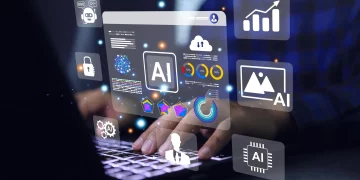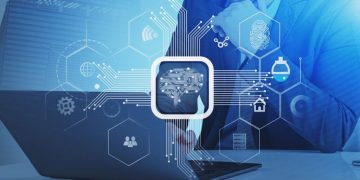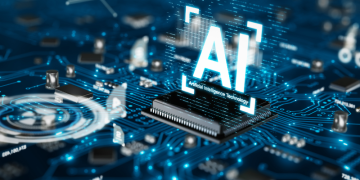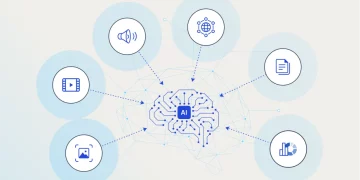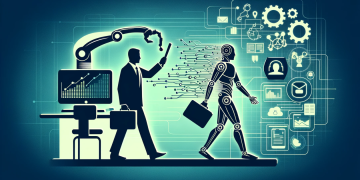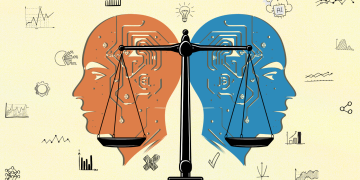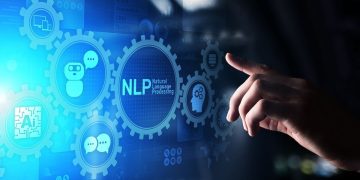Introduction
As technology continues to evolve, the deployment of Artificial Intelligence (AI) in surveillance systems has become an increasingly contentious issue. While AI offers the potential to enhance public safety and security through technologies like facial recognition and predictive policing, it also raises serious ethical concerns surrounding privacy, civil liberties, and the potential for abuse.
AI-powered surveillance systems have already been implemented in a variety of sectors, from law enforcement agencies to private companies, to track individuals, predict criminal activity, and monitor public spaces. However, these advancements are not without controversy. Privacy advocates argue that the pervasive use of AI surveillance technologies undermines individual freedoms, while law enforcement experts emphasize the importance of these tools in preventing crime and protecting citizens.
This article explores the ethical concerns surrounding AI in surveillance, focusing on the use of facial recognition, predictive policing, and the ongoing debate between privacy and security. It also discusses the role of public policy in addressing these concerns and finding a balance that respects civil liberties while ensuring safety.
The Role of AI in Surveillance Systems
AI technologies, particularly those related to facial recognition and predictive analytics, are becoming integral components of modern surveillance systems. These tools have the ability to analyze vast amounts of data, identify patterns, and make decisions with a level of accuracy and efficiency that traditional surveillance methods could not achieve.
Facial Recognition
Facial recognition technology is perhaps one of the most widely discussed and debated aspects of AI in surveillance. This technology uses AI algorithms to analyze facial features and match them to databases of known individuals. It is increasingly being deployed in public spaces, airports, shopping malls, and even by law enforcement agencies to identify suspects or locate missing persons.
The advantages of facial recognition in surveillance are clear. It has the potential to quickly identify individuals in real-time, track their movements, and detect potential threats. In law enforcement, it can help identify criminals or locate persons of interest with a high degree of accuracy. It can also be used in safety protocols, such as verifying identities at secure locations or in preventing fraud.
However, facial recognition raises significant ethical concerns related to privacy and the potential for misuse. The technology can be deployed without an individual’s knowledge or consent, and there is little oversight on how facial data is stored, shared, or used. Furthermore, facial recognition has been shown to exhibit biases, particularly in identifying people of color and women, leading to disproportionate targeting and the potential for false identifications.
Predictive Policing
Another key application of AI in surveillance is predictive policing, which involves using data analytics to forecast where and when crimes are likely to occur. By analyzing historical crime data, demographics, and other factors, predictive policing systems can help law enforcement agencies allocate resources more effectively and prevent crime before it happens.
While predictive policing can help reduce crime rates and improve resource allocation, it also raises significant ethical concerns. Critics argue that these systems can perpetuate biases inherent in the data they are trained on, leading to discriminatory practices. For example, if the data used to train predictive policing models reflects historical over-policing of certain communities, these systems may disproportionately target minority groups, leading to racial profiling and unfair law enforcement practices.
Moreover, predictive policing raises questions about the extent to which law enforcement should rely on AI to make critical decisions. If AI is used to predict criminal behavior, it could lead to preemptive actions against individuals who have not committed a crime but are simply suspected based on data trends. This approach may conflict with principles of due process and the presumption of innocence.

Privacy vs. Security: The Ethical Dilemma
The use of AI in surveillance poses a fundamental ethical dilemma between privacy and security. On one hand, AI technologies can significantly enhance public safety, helping law enforcement agencies respond more quickly to threats, investigate crimes more efficiently, and deter criminal activity. On the other hand, the pervasive use of surveillance raises concerns about the erosion of privacy, the potential for surveillance overreach, and the risk of government or corporate abuse.
Privacy Concerns
One of the primary ethical concerns surrounding AI surveillance is the invasion of privacy. In many cases, AI-driven surveillance systems are deployed in public spaces without individuals’ explicit consent or knowledge. This raises important questions about the right to privacy in public places. Should people be aware that they are being watched by AI systems at all times, or should there be limits to what can be monitored in public areas?
Additionally, there is the concern that the data collected by AI surveillance systems may be misused. Surveillance footage, facial recognition data, and behavioral profiles could be stored indefinitely and accessed by authorities or private corporations for purposes beyond public safety. This information could be used to track individuals’ movements, preferences, and behaviors, leading to a chilling effect on freedom of speech and assembly.
The widespread use of AI surveillance systems also creates the risk of false positives, where innocent individuals are mistakenly identified or targeted. The accuracy of AI-powered tools, particularly facial recognition systems, is not infallible, and errors in identification could lead to wrongful arrests or detentions.
Security Benefits
On the other hand, proponents of AI surveillance argue that these technologies are crucial for ensuring public safety and preventing crime. In an increasingly complex and interconnected world, law enforcement agencies need advanced tools to combat crime, terrorism, and other threats. AI-driven surveillance can help identify potential criminal activity, predict where crimes are likely to occur, and improve the efficiency of investigations.
In the case of facial recognition, AI can help law enforcement agencies quickly identify suspects in large crowds or track missing persons, potentially saving lives. In the context of predictive policing, AI can assist in directing resources to areas with high crime rates, improving the overall effectiveness of law enforcement.
While these technologies can offer tangible security benefits, they also require a delicate balance. Surveillance systems must be implemented in ways that prioritize public safety without compromising individuals’ right to privacy. The risk of surveillance becoming overly pervasive and intrusive must be carefully managed.
Public Policy and Regulation
The ethical concerns surrounding AI in surveillance underscore the need for clear public policy and regulatory frameworks to guide its development and deployment. Governments, tech companies, and civil society must work together to ensure that AI surveillance is used responsibly and ethically.
Establishing Clear Guidelines for AI Surveillance
One of the most important steps in addressing the ethical concerns surrounding AI surveillance is to establish clear guidelines for its use. These guidelines should ensure that surveillance systems are deployed in a transparent manner and that individuals are aware of when and how they are being monitored.
Additionally, these guidelines should ensure that AI systems are used in a manner that respects privacy rights and minimizes the risk of misuse. This includes limiting the collection and storage of personal data, ensuring that data is used only for the intended purposes, and establishing robust safeguards against unauthorized access or abuse.
Regulating Facial Recognition and Predictive Policing
Given the ethical risks associated with facial recognition and predictive policing, it is essential to regulate these technologies to ensure that they are used responsibly. In the case of facial recognition, this could involve creating rules around when and where the technology can be deployed, as well as ensuring that individuals have the ability to opt-out or challenge incorrect identifications.
For predictive policing, it is crucial to address the potential for bias and discrimination in the data used to train these systems. Policymakers should ensure that predictive policing systems are transparent, auditable, and regularly evaluated to prevent discriminatory practices. Moreover, oversight mechanisms should be in place to prevent the use of predictive policing systems for preemptive actions against individuals who have not been convicted of any crime.
Striking a Balance
Ultimately, the challenge is to strike a balance between the security benefits offered by AI surveillance technologies and the need to protect individual privacy and civil liberties. Surveillance systems should be deployed with caution, with robust safeguards in place to ensure that they are used only when necessary and in a manner that respects the rights of individuals.
Governments must also ensure that there are accountability measures in place to monitor the use of AI surveillance technologies. Oversight bodies should be established to review the deployment and use of these technologies, ensuring that they comply with ethical standards and respect the rights of citizens.
Conclusion
The use of AI in surveillance presents significant ethical challenges that must be carefully addressed in order to strike a balance between security and privacy. While AI-powered surveillance systems have the potential to enhance public safety, they also raise serious concerns about the erosion of privacy, the potential for misuse, and the risks of bias and discrimination.
To address these concerns, clear public policies and regulatory frameworks must be established to govern the use of AI in surveillance. These frameworks should ensure that surveillance technologies are used in a transparent and responsible manner, with robust safeguards in place to protect individual rights. By finding this balance, society can harness the benefits of AI surveillance while safeguarding privacy and ensuring accountability.




